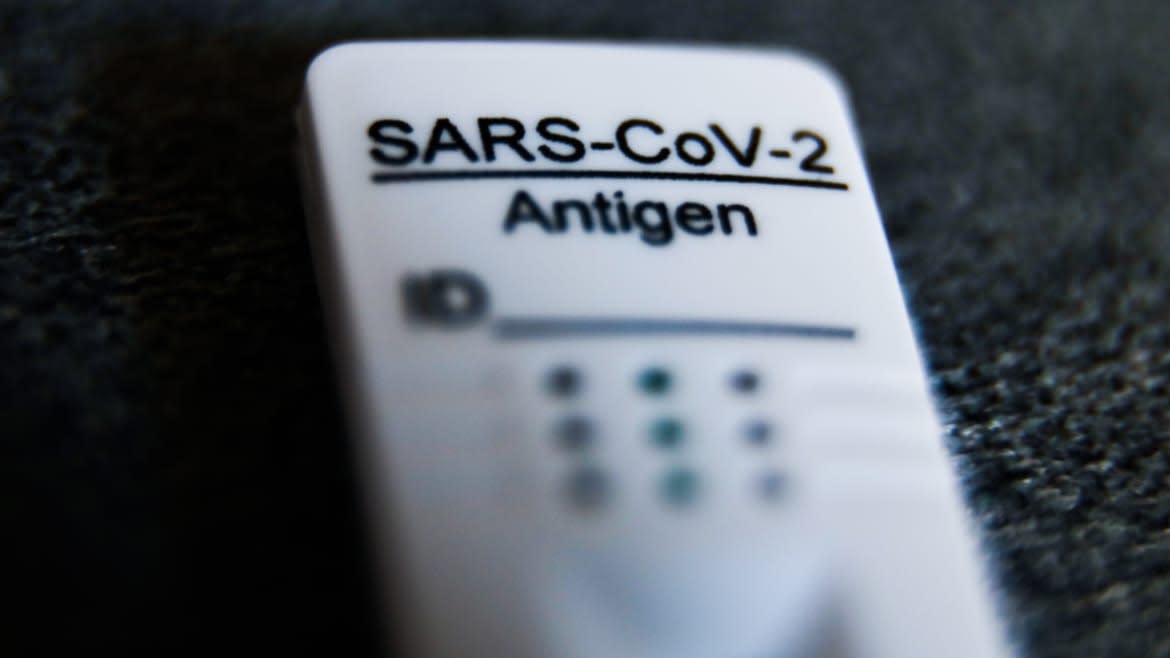This Could Be Our Fastest, Most Sensitive COVID Test Yet

While PCR tests are still the gold standard for diagnosing COVID, at-home rapid antigen tests have become quite popular in the last two years thanks to their ease of use and ability to deliver results in minutes in less than 30 minutes. But as everyone knows, they suffer from diminished accuracy. They can’t always detect early infections when there are low levels of the virus, and they may not be as sensitive to new COVID variants. False negatives can also come up more often than with PCRs.
A group of researchers in the U.K. are fixing to change that by harnessing the power of nanoparticles. In a new study published April 13 in the journal Sensors, researchers at Newcastle University created a COVID-19 test that uses a synthetic antibody called molecularly imprinted polymer nanoparticles (or nanoMIPs) could detect even the tiniest amounts of viral antigens as fast as most off-the-shelf rapid antigen tests currently available. It could be a huge boon to helping people identify early COVID-19 infections and reduce the impact of nascent outbreaks that will continue to pop up over time.
Sometimes called “synthetic antibodies,” nanoMIPs emerged around 40 years ago as a way to create molecules that mimic an antibody’s ability to sense and bind tightly to another target molecule. The Newcastle group constructed nanoMIPs that could recognize a portion of the coronavirus spike protein—what the virus uses to slip into cells—and attached them to an electrode. When the nanoMIPs detect the viral spike protein, the electrode heats up to indicate a positive result.
Rapid Home COVID Tests Could Be Huge—if They Don’t Backfire
When the researchers doused the electrodes with nasal swab samples from seven patients (all of whom tested positive for COVID on PCR testing), the test was positive in 15 minutes. It was even able to detect a viral presence that was 6,000 times less than what a commercial rapid antigen test was designed to detect.
This test won’t be hitting the market just yet. The Newcastle team plans to conduct further studies with more patients to further validate the test. Once that’s done, it may be deployed for commercial use and sewage testing to catch an outbreak preemptively. And because the nanoMIPs are pretty resistant to heat, they could be a good, long-lasting option in warmer climates where heat exposure can destroy an at-home COVID test.
Be prepared to still stick a swab up your nose, though. There’s no getting around that, at least not yet.
Got a tip? Send it to The Daily Beast here
Get the Daily Beast's biggest scoops and scandals delivered right to your inbox. Sign up now.
Stay informed and gain unlimited access to the Daily Beast's unmatched reporting. Subscribe now.

